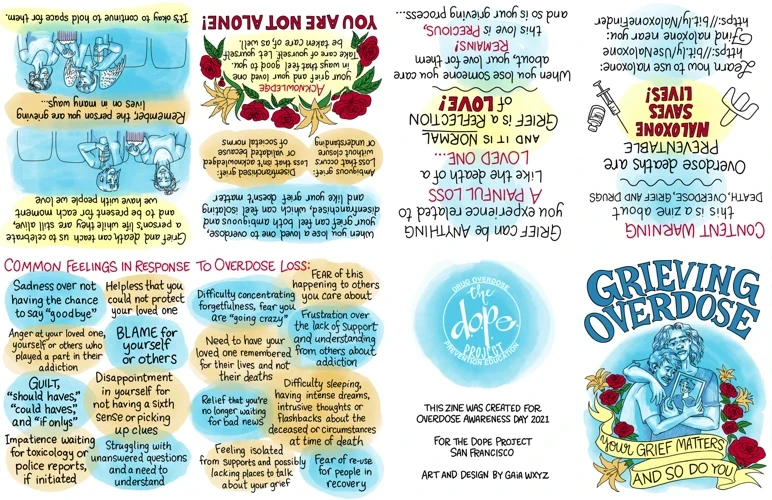Have you ever woken up from a dream feeling shaken and confused? Dream experiences can be mysterious and sometimes leave us pondering their meaning. One type of dream that often creates a sense of perplexity is an overdose dream. These dreams can be intense and unsettling, filled with vivid symbols and messages that may leave you wondering what they could possibly signify. It is important to remember that dreams are highly personal and subjective, and their meanings can vary greatly from person to person. In this article, we will explore the world of overdose dreams, decoding the symbols and messages they contain. By understanding the possible meanings of these dreams, we can gain valuable insights into our own inner thoughts and emotions. So, let us delve into the realm of dreams and unlock the secrets hidden within.
Understanding Overdose Dreams

Understanding Overdose Dreams
In order to fully comprehend the meaning behind overdose dreams, it is important to delve into their symbolism and messages. These dreams can be perplexing and often leave individuals feeling uneasy or disturbed upon waking. By examining the common elements and symbols present in overdose dreams, we can begin to decode their underlying meanings.
1. What is an Overdose Dream?
An overdose dream refers to a specific type of dream where the dreamer experiences an overdose or witnessing someone else overdosing on drugs or medications. These dreams typically involve scenes of excessive consumption or the effects of an overdose, such as loss of consciousness, erratic behavior, or physical discomfort. It is important to note that these dreams are not literal reflections of real-life events, but rather symbolic representations of deeper emotions and concerns.
2. Common Elements and Symbols in Overdose Dreams
Overdose dreams often contain several common elements and symbols that can provide insight into their meaning. These symbols may vary from person to person and can be influenced by personal experiences or cultural associations. Some of the common elements and symbols found in overdose dreams include:
– Drugs or Medications: The presence of drugs or medications in overdose dreams symbolizes the need for external substances to cope with emotional or psychological issues. It may indicate a reliance on these substances as a means of escape or self-medication.
– Excessive Consumption: Overdose dreams frequently involve scenes of excessive consumption, whether it is taking a large quantity of pills or ingesting excessive amounts of drugs. This symbolizes an overwhelming desire for escape or a tendency to engage in self-destructive behaviors.
– Loss of Control: Feeling a loss of control is often represented in overdose dreams. This can manifest as being unable to stop taking drugs or witnessing others losing control due to an overdose. It reflects a fear of losing control in one’s waking life, whether it is over one’s actions or emotions.
– Physical Discomfort: Experiencing physical discomfort in overdose dreams, such as pain or discomfort, can symbolize underlying emotional or psychological distress. It may suggest that unresolved issues or negative emotions are manifesting in the dreamer’s subconscious mind.
– Death or Near-Death Experiences: Overdose dreams often involve themes of death or near-death experiences. This represents a desire for release or a need for change in the dreamer’s life. It may indicate a longing to let go of certain aspects of their life or a need for personal transformation.
By recognizing and analyzing these common elements and symbols in overdose dreams, individuals can gain a deeper understanding of the messages their dreams are trying to communicate.
To continue reading about dream meanings, you can explore the dream interpretation of eating dried fish or the dream symbolism of cattle. These articles will provide further insights into the interpretation of dreams and their potential meanings.
1. What is an Overdose Dream?
An overdose dream is a type of dream that involves the consumption or excessive use of drugs or medications, leading to a sense of danger, loss of control, or even death. It is important to note that these dreams are symbolic and should not be taken literally. Rather, they serve as a reflection of the dreamer’s subconscious thoughts, feelings, and fears related to substance abuse, excessive behavior, or a desire for release.
In an overdose dream, the dreamer may experience vivid and intense sensations of being under the influence of drugs or medications. They may feel the effects of an overdose, such as dizziness, confusion, numbness, or a distorted sense of reality. It is not uncommon for these dreams to elicit strong emotions of fear, panic, or a sense of impending doom.
The symbolism in overdose dreams varies from person to person, but there are some common elements and symbols that tend to appear. These symbols can include the specific type of drug or medication being used, the method of consumption (such as swallowing a pill or injecting a substance), the presence of medical professionals or emergency responders, or the presence of others who may be enabling or encouraging the substance use.
One possible interpretation of an overdose dream is that it serves as a warning sign of excessive behavior in the dreamer’s waking life. It may be a message from the subconscious, urging the dreamer to reconsider their actions or habits that may be leading to negative consequences. The dream could be a reflection of the dreamer’s concerns about their own addictive tendencies or a fear of losing control in some aspect of their life.
Another interpretation is that an overdose dream reflects a deeper fear of losing control. The dreamer may have a desire for stability and predictability, and the idea of losing control, whether through substance abuse or other means, is deeply unsettling. The dream may serve as a reminder to the dreamer to address any issues that are causing a loss of control or to seek support in regaining stability.
Overdose dreams can also be related to escapism and substance abuse issues. The dreamer may have underlying feelings of dissatisfaction, stress, or a desire to escape from their daily life. The dream could be a manifestation of these feelings, highlighting the dreamer’s subconscious need for release or an unhealthy coping mechanism that they may be relying on.
Lastly, an overdose dream can represent a desire for release or self-destruction. The dreamer may be feeling overwhelmed or burdened in their waking life and the dream serves as an outlet for these emotions. It may be a reflection of the dreamer’s subconscious longing for a way to escape their problems or to relieve themselves from the pressures they are experiencing.
To gain a deeper understanding of the meaning behind an overdose dream, it is important to explore the context and analyze the dreamer’s personal associations. This involves examining one’s relationships with drugs or medications, emotional and mental state, and any external stressors or challenges they may be facing in their waking life.
Please, note that this article does not provide a comprehensive interpretation of overdose dreams and their meanings. Dream analysis is subjective and can vary from person to person. It is always important to consider one’s own unique experiences, thoughts, and feelings when interpreting dreams.
In the next section, we will further explore these personal associations and how they can contribute to the interpretation of overdose dreams.
2. Common Elements and Symbols in Overdose Dreams
Common Elements and Symbols in Overdose Dreams
One common element in overdose dreams is the presence of drugs or medications. These could be represented by pills, syringes, or other drug paraphernalia. The specific drugs or medications can vary widely depending on the dreamer’s personal experiences and associations. It could be prescription medications, illegal drugs, or even over-the-counter substances.
Another common symbol in overdose dreams is a sense of chaos and confusion. The dreamer may feel overwhelmed, disoriented, or out of control. This could be depicted by a swirling vortex, a crowded and chaotic room, or a disorganized and messy environment. The chaos represents the internal turmoil and challenges that the dreamer is facing in their waking life.
Many overdose dreams also feature themes of death and dying. This can be seen through symbols such as graves, funeral processions, or even the dreamer themselves experiencing a near-death experience. These symbols reflect the fear and anxiety that the dreamer may have about the consequences of their actions or the potential harm that they may be causing themselves.
Additionally, overdose dreams often include symbols of escape or avoidance. This could be represented by the dreamer running away from something or someone, hiding, or even using substances as a means of escape. The dreamer may be using drugs or medications in their dream as a way to cope with or avoid facing their problems and emotions in reality.
It is important to note that the specific symbols and elements in overdose dreams can vary greatly depending on the individual. Personal experiences, cultural backgrounds, and individual beliefs can all influence the symbols that appear in these dreams.
For example, if a person grew up in a household where drug addiction was prevalent, their overdose dreams may include specific details related to their family history or experiences with drugs. On the other hand, someone who has never personally encountered drugs may have different symbols in their overdose dreams, such as unfamiliar substances or ambiguous scenes.
The common elements and symbols in overdose dreams serve as metaphors for the dreamer’s internal struggles, fears, and desires. They provide insight into the dreamer’s psychological state and can help uncover underlying emotions and conflicts that need to be addressed.
(Possible relevant anchor: Killing a two headed snake dream meaning)
Interpreting Overdose Dreams: Possible Meanings
Interpreting Overdose Dreams: Possible Meanings
Dreams about overdosing can be intense and unsettling. They often leave the dreamer with feelings of fear, confusion, and anxiety. Understanding the possible meanings behind these dreams can provide insights into our thoughts, emotions, and personal experiences. Here are some interpretations of overdose dreams:
1. Warning Sign of Excessive Behavior
One possible meaning of an overdose dream is that it serves as a warning sign of excessive behavior in one’s waking life. This could be related to overindulgence in substances, such as drugs or alcohol, or even engaging in other compulsive behaviors. The dream may be a message from the subconscious mind, urging the dreamer to reassess their habits and seek a healthier, more balanced lifestyle.
2. Fear of Losing Control
Another interpretation of overdose dreams is that they represent a fear of losing control. The act of overdosing in the dream may symbolize the fear of losing control over one’s actions, thoughts, or emotions. It could reflect a desire to maintain stability and avoid situations that may lead to chaos or self-destruction. This dream might be urging the dreamer to confront their fears of losing control and find ways to regain a sense of stability in their waking life.
3. Escapism and Substance Abuse Issues
In some cases, overdose dreams can be indicative of deeper issues related to escapism and substance abuse. These dreams may be a manifestation of the dreamer’s struggles or conflicts with drugs or medication. They may reflect a desire to escape from the challenges and stressors of daily life. The dream could serve as a wake-up call to address any unresolved issues surrounding substance abuse and seek help or support to overcome them.
4. Desire for Release or Self-Destruction
Another possible meaning of overdose dreams is that they represent a subconscious desire for release or self-destruction. The dreamer may be experiencing intense emotions or feeling overwhelmed by life’s challenges, leading to thoughts of wanting to escape or find an end to their struggles. These dreams could indicate a need for the dreamer to explore healthier coping mechanisms and find constructive ways to deal with their emotions.
It is important to note that these interpretations are not definitive, as dream symbolism is highly subjective and can vary from person to person. To gain a deeper understanding of the specific meaning of an individual’s overdose dream, it is necessary to explore the personal associations and context surrounding the dream.
Exploring Context: Analyzing Your Personal Associations
The true meaning of an overdose dream can be better understood by analyzing the dreamer’s personal associations with drugs or medications, emotional and mental state, and external stressors and challenges.
1. Relationships with Drugs or Medications
Consider your personal relationship with drugs or medications. Have you had any past experiences with substance abuse or addiction? Do you currently rely on any medications for your physical or mental well-being? Understanding your personal history and experiences can provide insights into the underlying messages of your overdose dream.
2. Emotional and Mental State
Reflect on your emotional and mental state during the dream. Were you feeling anxious, overwhelmed, or out of control? Did you sense a desire to escape or find relief from certain emotions or situations in your waking life? Examining your emotional and mental state can reveal the underlying emotions and conflicts driving the dream’s symbolism.
3. External Stressors and Challenges
Consider the external stressors and challenges in your life. Are you currently facing difficult situations or experiencing high levels of stress? Your dream may be a reflection of your subconscious mind’s attempt to process and cope with these external pressures. Understanding the specific stressors and challenges can help unravel the deeper meaning of the dream.
By exploring these personal associations and context, you can gain a more nuanced understanding of your overdose dream and its potential messages.
Continue reading: Falling Into Lava Dream Meaning
1. Warning Sign of Excessive Behavior
Dreaming about an overdose can serve as a warning sign of excessive behavior in one’s waking life. The symbolism of an overdose suggests that there may be areas in our lives where we are pushing ourselves too far or indulging in harmful habits or behaviors.
The dream may be trying to communicate that we need to take a step back and reassess our actions. It could be a sign that we are overloading ourselves with responsibilities, tasks, or even pleasures, leading to a potential burnout or loss of control.
An overdose dream may serve as a wake-up call, urging us to be more mindful of our actions and the consequences they may have. It may highlight the need for moderation and balance in our lives, reminding us that excessive behavior can have damaging effects on our physical, emotional, and mental well-being.
The specific elements and symbols within the dream can provide further insight into the nature of the excessive behavior being represented. For example, if the dream features a specific substance or medication, it could be linked to dependencies or addictive tendencies in our waking lives. If the dream includes people who enable or encourage the excessive behavior, it may suggest that our social circle or environment is influencing us negatively.
To fully understand the meaning of an overdose dream, it is essential to analyze the personal associations and context surrounding the dream. Reflecting on our relationship with drugs or medications, as well as any emotional or mental stressors we may be experiencing, can offer valuable insights into the underlying message of the dream.
If someone has had a history of substance abuse or addictive tendencies, an overdose dream may serve as a powerful reminder to address these issues and seek support. It could be an indicator that the dreamer is suppressing emotions or using substances as a form of escapism.
An overdose dream can also be a manifestation of underlying desires for release or self-destruction. It may indicate a subconscious longing to let go of responsibilities or to escape the pressures of daily life. In some cases, it can suggest self-destructive tendencies or feelings of hopelessness.
An overdose dream should not be taken lightly. It is crucial to pay attention to the warnings and messages it conveys. If the dream is causing distress or is recurring, it may be beneficial to seek professional support. Through self-reflection, awareness, and incorporating healthy coping mechanisms, it is possible to overcome and process the emotions and experiences associated with overdose dreams.
It’s important to note that dreaming about overdoses does not necessarily mean that the dreamer will experience or engage in such behavior in real life. Dreams are complex and often symbolic, serving as a way for the subconscious mind to communicate and process thoughts, emotions, and experiences.
2. Fear of Losing Control
Fear of Losing Control is a common theme in overdose dreams. These dreams often symbolize a deep-seated fear of losing control over one’s life or a particular situation. The dreamer may feel overwhelmed and powerless, and the overdose symbolizes the fear of succumbing to external pressures or circumstances beyond their control.
In the dream, the act of overdosing represents a loss of control and the consequences that come with it. The dreamer may feel as though they are on the verge of losing control or that their life is spiraling out of control. This fear may stem from a variety of factors, such as personal relationships, work-related stress, or financial instability.
The fear of losing control can also relate to the dreamer’s internal struggles and emotions. They may feel that their emotions are overpowering or that they are unable to manage their feelings effectively. The overdose symbolizes a fear of being overwhelmed by these emotions and the potential negative consequences that may result.
In interpreting this dream, it is important to consider the specific elements and symbols that appear. For example, if the dream includes a specific substance or drug, it may indicate the source of the fear or the specific area of life where the dreamer feels a lack of control. Additionally, the presence of other people in the dream can provide further insight into the dreamer’s relationships and interactions with others.
The Fear of Losing Control in overdose dreams is a powerful symbol of the dreamer’s anxieties and insecurities. Understanding this fear can offer valuable insights into the dreamer’s emotional state and provide an opportunity for personal growth and self-reflection. By acknowledging and addressing these fears, the dreamer can work towards regaining a sense of control and finding healthier ways to manage stress and emotions.
[Link: Cattle dream meaning]3. Escapism and Substance Abuse Issues
Escapism and substance abuse are common themes in dreams about overdose. These dreams may be symbolic representations of one’s desire to escape from reality or a way of coping with difficult emotions through the use of substances. It is important to explore the possible meanings behind these dreams to gain a deeper understanding of one’s thoughts and behaviors.
Dreams about overdose can be a reflection of an individual’s struggle with escapism. The dream may signify a strong desire to avoid or run away from the challenges and responsibilities of daily life. This could be a manifestation of feeling overwhelmed or trapped in a particular situation or relationship. The use of substances in the dream could represent a form of escapism or a coping mechanism to numb emotional pain or stress.
These dreams may also indicate ongoing substance abuse issues. If an individual is currently struggling with addiction or has a history of substance abuse, dreams about overdose may serve as a reminder or a warning sign of the negative consequences associated with drug use. It could be the subconscious mind’s way of expressing concerns about the individual’s well-being and urging them to seek help or make positive changes in their life.
The symbolism of the substances in the dream can also provide additional insights. For example, the specific drug or medication featured in the dream may have personal significance to the individual. It could be a substance they have used in the past or one that holds emotional associations. Exploring how the individual feels about these substances and their relationship with them can provide valuable information about their attitudes towards substance abuse and the potential underlying issues.
Dreams about overdose and substance abuse can be complex and multifaceted. They may highlight underlying issues related to escapism, emotional distress, or substance abuse problems. It is essential to analyze the personal associations and context of the dream to fully understand its meaning. If an individual frequently experiences these types of dreams or has concerns about their substance use, it may be beneficial to seek professional support to address any underlying issues and develop healthy coping mechanisms to manage stress and emotions.
4. Desire for Release or Self-Destruction
Overdose dreams can sometimes be associated with a desire for release or self-destruction. These dreams often signify a subconscious yearning for an escape from the pressures and burdens of daily life. The dreams may reflect a deep internal struggle or feeling of being overwhelmed, and the desire to find a release from these emotions.
In these dreams, the act of overdosing on drugs or medications can symbolize a form of self-sabotage or self-destructive behavior. It may represent a subconscious desire to punish oneself or escape from the pain and difficulties of reality.
The symbolism of self-destruction in overdose dreams can also indicate a need for a radical change or transformation in one’s life. It may suggest that the dreamer is feeling trapped or stagnant, and is seeking a way to break free from their current circumstances. This desire for release may stem from a sense of being constrained or limited in some way, and the dreamer may be longing for a fresh start or a chance to reinvent themselves.
It is important to note that overdose dreams should not be taken as literal signs or encouragement to engage in self-destructive behavior. Instead, they serve as a wake-up call to explore and address the underlying emotions and issues causing these dreams. It may be beneficial to seek professional support or counseling to better understand and work through these feelings.
In terms of personal associations, the interpretation of a desire for release or self-destruction in overdose dreams can be influenced by various factors. For example, the dreamer’s relationship with drugs or medications may play a significant role. If the dreamer has a history of substance abuse or struggles with addiction, the dream may serve as a warning sign to address these issues.
Additionally, the dreamer’s emotional and mental state at the time of the dream can offer insights into the underlying meaning. If the dream occurs during a period of high stress or emotional turmoil, it may suggest that the desire for release or self-destruction is a manifestation of these challenging circumstances.
External stressors and challenges in the dreamer’s life may also contribute to the interpretation of a desire for release or self-destruction. For example, if the dreamer is facing significant obstacles or feeling overwhelmed by responsibilities, the dream may reflect a subconscious desire to escape from these burdens.
To overcome and process overdose dreams with a desire for release or self-destruction, self-reflection and awareness are key. It is important to acknowledge and explore these feelings without judgment or shame. Seeking professional support from a therapist or counselor can provide guidance and assistance in understanding and addressing the underlying issues.
Incorporating healthy coping mechanisms is another crucial step in processing these dreams. Engaging in activities that promote self-care, stress reduction, and emotional well-being can help alleviate the desire for self-destruction. This may include practices such as meditation, exercise, journaling, or spending time with loved ones.
Overdose dreams with a desire for release or self-destruction may indicate a subconscious longing for escape or transformation. It is important to approach these dreams with self-compassion and seek support from professionals or loved ones to navigate and understand the underlying emotions and issues.
Exploring Context: Analyzing Your Personal Associations

When exploring the context of overdose dreams and analyzing personal associations, it is important to delve deeper into specific factors that may be influencing the dream’s symbolism and messages. By examining one’s relationships with drugs or medications, emotional and mental state, and external stressors and challenges, a clearer understanding of the dream’s meaning can be achieved.
In order to interpret the symbolism in an overdose dream, it is crucial to consider one’s personal relationship with drugs or medications. This could include any history of substance abuse, dependence, or even a current prescription medication regimen. The dream may act as a reflection of any underlying fears, struggles, or unresolved issues relating to these substances. For example, if the dreamer has a history of substance abuse, an overdose dream may bring to light lingering concerns about relapse or the consequences of addictive behavior. On the other hand, if the dreamer has no personal connection to drugs or medications, the dream may be symbolizing a need to explore other areas of excessive behavior in their life.
The emotional and mental state of the dreamer can greatly impact the interpretation of an overdose dream. Feelings of stress, anxiety, or even depression can manifest in the form of such dreams, serving as a reflection of the dreamer’s inner turmoil. The dream may symbolize a desire to escape from overwhelming emotions or an inability to cope with certain aspects of life. By analyzing the dreamer’s emotions and mental state, it becomes possible to uncover the deeper meanings behind the overdose symbolism.
External stressors and challenges can also play a significant role in shaping the symbolism in an overdose dream. These may include relationship problems, work-related stress, financial difficulties, or any other major life events that are causing tension or unease. The dreamer may be using the symbolism of an overdose to represent feeling overwhelmed or out of control due to these external factors. By examining the specific stressors and challenges in their life, the dreamer can gain insight into how these factors are influencing their subconscious mind and manifesting into their dreams.
When exploring the context of an overdose dream and analyzing personal associations, it is important to take a comprehensive approach. By considering one’s relationships with drugs or medications, emotional and mental state, and external stressors and challenges, a more accurate interpretation of the dream’s symbols and messages can be achieved. It is important to remember that dream interpretation is highly subjective and can vary depending on the individual’s unique experiences and personal associations.
1. Relationships with Drugs or Medications
When interpreting overdose dreams, it is important to consider an individual’s relationships with drugs or medications. This aspect of the dream can provide valuable insights into the subconscious mind and the individual’s personal experiences and beliefs.
Relationships with drugs or medications in the context of overdose dreams refer to the dreamer’s past or present involvement with substances. This can include recreational drug use, prescription medications, or even a history of addiction. The dream may reflect the dreamer’s current or past relationship with these substances and their impact on their life.
For example, if the dreamer has a history of substance abuse or addiction, the overdose dream may be a reflection of their fears, guilt, or unresolved issues related to their past behavior. It may indicate a subconscious desire to address these issues or a warning sign to be cautious of relapse. The dream could also be a manifestation of the individual’s efforts to come to terms with their past behaviors and make positive changes in their life.
On the other hand, if the dreamer has never used drugs or medications excessively, the overdose dream may symbolize a different aspect of their life. It could represent a metaphorical “overdose” of something else, such as work, relationships, or even hobbies. The dream may signify a feeling of being overwhelmed or consumed by a particular area of their life.
In order to fully understand the meaning of the relationship with drugs or medications in the dream, it is essential to examine the dreamer’s personal associations and experiences. This can be done by introspection and self-reflection, exploring the emotions and memories that surface when considering their experiences with substances.
It is worth mentioning that while overdose dreams can be unsettling or even distressing, they do not necessarily indicate that the individual will experience a real-life overdose. Instead, they serve as symbolic representations of deeper emotions, experiences, or fears.
Example: Let’s say a person named Sarah had struggled with drug addiction in the past but has been in recovery for several years. In her dream, she experiences an overdose and wakes up feeling startled and anxious. When analyzing this dream, Sarah recognizes that it may be a reflection of her ongoing fear of relapse and the importance of staying vigilant in her recovery journey. The dream serves as a reminder for her to continue practicing self-care, seeking support, and addressing any unresolved issues from her past.
It is important to note that dream interpretations are subjective and can vary from person to person. The specific details and emotions within the dream, as well as the individual’s personal experiences and beliefs, play a significant role in understanding the meaning of the dream’s symbols and messages. Thus, it is essential for the individual to reflect on their own associations and seek professional guidance if needed.
2. Emotional and Mental State
When interpreting the emotional and mental state in relation to overdose dreams, it is crucial to analyze the individual’s personal associations and experiences. The emotions and mental well-being of a person can greatly influence the symbolism and meaning behind their dreams.
In the context of overdose dreams, emotions such as fear, anxiety, and vulnerability are often prevalent. These dreams can be an indication of deep-seated emotional turmoil or distress. They may also reflect unresolved issues or traumas that are affecting the person’s emotional and mental state.
An individual experiencing stress, anxiety, or depression may be more prone to having overdose dreams. These dreams could serve as a reflection of their inner emotional struggles and the need for resolution or healing. It is important to recognize that our dreams are often a manifestation of our subconscious mind trying to convey messages and emotions that may be difficult to confront in our waking life.
The emotional and mental state of a person can also be reflected in the overall tone and atmosphere of the dream. For example, if the dream is filled with darkness, despair, or chaos, it could signify a deep emotional disturbance or turmoil. On the other hand, if the dream has a sense of calmness or clarity, it might indicate a certain level of emotional stability or self-awareness.
To gain a clearer understanding of the emotional and mental state surrounding overdose dreams, it is essential to explore the dreamer’s personal associations and experiences. Reflecting on the dreamer’s own emotional struggles, past traumas, or current challenges can provide valuable insights into the possible meanings behind these dreams.
For example, if the dreamer has a history of substance abuse or addiction, their emotional and mental state can greatly influence the symbolism of overdose dreams. These dreams might serve as a reminder of the consequences of their actions or a reflection of their ongoing struggles with sobriety.
Additionally, external stressors and challenges can also heavily impact one’s emotional and mental state, therefore influencing the content and meaning of dreams. For instance, if a person is experiencing a high level of stress at work or in their personal relationships, it could manifest in their dreams as a feeling of being overwhelmed or out of control.
It is important to approach the interpretation of emotional and mental state in overdose dreams with sensitivity and empathy. It is a deeply personal and subjective experience that requires a thorough understanding of the dreamer’s unique circumstances and associations. So, if you want to get more information on interpreting dreams, check out our article on dream of taking pictures.
3. External Stressors and Challenges
External stressors and challenges can play a significant role in the interpretation of overdose dreams. These dreams may be a reflection of the subconscious mind trying to process and cope with external pressures and difficulties in life. Understanding and analyzing these stressors can provide valuable insights into the meaning behind the dream.
One possible external stressor that may be influencing overdose dreams is the individual’s relationships with drugs or medications. It’s essential to examine if there is a personal history of substance abuse or if the dreamer has a close connection to someone struggling with addiction. These factors can contribute to the appearance of overdose dreams as a manifestation of fears, concerns, or unresolved emotions surrounding drug use.
Additionally, the emotional and mental state of the dreamer can influence the occurrence of overdose dreams. If the individual is experiencing high levels of anxiety, depression, or emotional turmoil, these feelings may manifest in the form of intense and unsettling dreams. The dreamer’s emotional and mental well-being should be considered when interpreting the dream’s meaning.
External stressors such as work-related pressures, relationship issues, financial difficulties, or other demanding life circumstances can contribute to the occurrence of overdose dreams. These dreams may serve as a symbol of the dreamer feeling overwhelmed or out of control in waking life. The dreamer may be struggling to manage or cope with the external challenges they face, leading to the appearance of overdose dreams as a representation of this inner turmoil.
To gain a deeper understanding of the specific external stressors and challenges that may be influencing an individual’s overdose dreams, it’s important to engage in self-reflection and introspection. The dreamer should consider the events, situations, or individuals in their waking life that may be causing stress or contributing to feelings of overwhelm.
For example, if the dreamer is currently facing a challenging work environment, the dream may reflect their fear of failure or their desire to escape the pressure. In contrast, if the dreamer is going through a difficult breakup, the dream may symbolize their struggle to let go of unhealthy patterns or the fear of being alone.
By identifying the relevant external stressors and challenges, the dreamer can gain clarity on the underlying messages and symbolism in their overdose dreams. This self-analysis can serve as a starting point for addressing and resolving these external stressors and challenges, allowing for personal growth and potentially reducing the recurrence of overdose dreams.
If you’d like to learn more about dream meanings related to specific external stressors, you can explore the dream interpretations of eating dried fish, snowy forest, or clip-on earrings. These dreams may provide insights into how external factors influence dream symbolism and interpretation.
Overcoming and Processing Overdose Dreams
Overcoming and Processing Overdose Dreams
Processing and overcoming overdose dreams can be a challenging but necessary step in understanding and addressing underlying issues. These dreams often carry important messages and symbols that can provide insights into our behaviors, fears, and desires. Here are some strategies to help with the process:
1. Self-Reflection and Awareness:
One of the first steps in overcoming and processing overdose dreams is self-reflection and increased self-awareness. Take the time to carefully analyze the dream and its symbols, paying attention to any emotions or thoughts that arise. Consider keeping a dream journal to track recurring themes or patterns that may appear in your dreams. By gaining a deeper understanding of the dream’s meaning, you can begin to unravel its significance and explore any potential underlying issues.
2. Seeking Professional Support:
If overdose dreams persist or cause significant distress, it may be beneficial to seek support from a mental health professional. A therapist or counselor can provide a safe and non-judgmental space for you to explore the deeper meanings behind these dreams. They can help you unravel any unresolved trauma, fears, or challenges that may be contributing to the dreams. Additionally, professionals can offer guidance and coping strategies to assist in processing and overcoming these dreams.
3. Incorporating Healthy Coping Mechanisms:
In order to overcome and process overdose dreams, it is essential to develop healthy coping mechanisms. Engaging in activities such as exercise, meditation, journaling, or creative outlets can help manage stress and anxiety related to these dreams. Finding healthy ways to express emotions and manage triggers can reduce the impact of these dreams on your daily life.
It is important to remember that dreams are highly personal and can vary greatly in meaning from person to person. The interpretation of an overdose dream should be approached with caution and considered within the context of an individual’s personal experiences and circumstances. Processing and overcoming these dreams can be a valuable opportunity for personal growth and self-discovery.
1. Self-Reflection and Awareness
Self-reflection and awareness play a crucial role in understanding and processing overdose dreams. These dreams can be deeply unsettling and may indicate underlying issues that need to be addressed. Taking the time to reflect on the dream and examining one’s thoughts and emotions can lead to valuable insights and personal growth.
Self-reflection involves introspection and examining one’s own thoughts, feelings, and behaviors. In the context of overdose dreams, self-reflection can help uncover any patterns or triggers that may be contributing to these dreams. It is important to approach self-reflection with an open mind and without judgment.
One way to engage in self-reflection is to keep a dream journal. This involves recording details of the dream, such as the setting, characters, and emotions experienced. By writing down these details, individuals can gain a better understanding of the dream’s symbolism and potential messages.
Another technique is to meditate or engage in mindfulness practices. These practices can help individuals become more attuned to their thoughts and emotions, allowing for a deeper exploration of the underlying meanings behind their dreams.
In addition to self-reflection, cultivating awareness is essential when processing overdose dreams. This involves being mindful of one’s thoughts, feelings, and behaviors in waking life. By being aware of any excessive or addictive tendencies, individuals can begin to address any potential issues that may be surfacing in their dreams.
It is important to acknowledge any substance abuse or addictive behaviors that may be present in one’s life. This could include excessive alcohol consumption, dependency on prescription medications, or reliance on recreational drugs. Recognizing these patterns and seeking help or support is a critical step towards overcoming addiction.
2. Seeking Professional Support
Seeking professional support is crucial when dealing with the complex emotions and messages behind overdose dreams. While dream interpretation can provide valuable insights, it is important to remember that these dreams often stem from deep-seated fears and anxieties.
A trained therapist or counselor can offer a safe and supportive space for individuals to explore the underlying issues that may be contributing to these dreams. They can help identify any unresolved traumas, address any addictive tendencies, and provide guidance on developing healthier coping mechanisms.
Therapy sessions can involve various techniques such as talk therapy, cognitive-behavioral therapy (CBT), and eye movement desensitization and reprocessing (EMDR), among others. The approach will depend on the individual’s specific needs and goals.
Additionally, professional support can also extend beyond therapy to include medical professionals, such as psychiatrists or addiction specialists. These professionals can provide further evaluation and potentially prescribe medication or recommend specific treatment plans if substance abuse or addiction issues are present.
It is important to note that seeking professional support is not a sign of weakness, but rather a proactive step towards healing and growth. Having an objective and trained perspective can significantly contribute to understanding and resolving the underlying issues associated with overdose dreams.
To find a qualified professional, individuals can reach out to their primary care physician for referrals or conduct online searches for therapists specializing in dream analysis, addiction, or trauma. It is essential to choose someone who has experience in the relevant areas and whom you feel comfortable opening up to.
Remember, processing and working through overdose dreams can take time, and it is crucial to be patient with oneself throughout the journey. The guidance and support of a professional can play a significant role in this process, helping individuals gain a deeper understanding of themselves and their dreams and ultimately fostering personal growth and healing.
If you are interested in exploring the meaning behind other types of dreams, you can check out our articles on eating dried fish in dreams, snowy forest dreams, or clip-on earrings in dreams.
3. Incorporating Healthy Coping Mechanisms
Incorporating Healthy Coping Mechanisms:
Managing the emotions and underlying issues that may be associated with overdose dreams is essential for overall well-being and mental health. One way to do this is by incorporating healthy coping mechanisms into daily life. These coping mechanisms can help individuals better understand and regulate their emotions, reduce stress levels, and build resilience. Here are a few strategies that can be helpful:
1. Mindfulness and Meditation: Practicing mindfulness and meditation techniques can be beneficial in managing stress and anxiety. These practices involve focusing on the present moment, observing thoughts and feelings without judgment, and cultivating a sense of calm and self-awareness. By incorporating mindfulness into daily routines, individuals can develop a greater understanding of their emotions and reactions, allowing them to respond to stressors in a more balanced and grounded manner.
2. Physical Exercise: Engaging in regular physical exercise has been shown to have numerous benefits for mental health. Exercise releases endorphins, which can improve mood and reduce symptoms of anxiety and depression. Additionally, physical activity serves as a healthy outlet for stress and can provide a sense of accomplishment. Finding an exercise routine or activity that is enjoyable and suits individual preferences is important in maintaining long-term engagement.
3. Journaling: Keeping a journal can be a helpful tool for processing emotions and gaining insight into personal experiences. Writing down thoughts, feelings, and dreams related to overdose can provide a safe space for reflection and self-expression. Journaling can also help identify patterns or triggers that may be contributing to the appearance of overdose dreams. By gaining a better understanding of these triggers, individuals can work towards resolving deep-seated issues or seeking professional support if necessary.
4. Seeking Support: Building a support network is crucial when navigating challenging emotions and experiences. Talking to trusted friends, family members, or a therapist can offer a safe and compassionate space to process overdose dreams and the emotions they evoke. Professional counselors or therapists can provide guidance and offer strategies for coping effectively with these dreams. Barbara is a name that is often associated with strength and perseverance, qualities that can be helpful in overcoming emotions related to overdose dreams. Seeking support from a therapist named Barbara could be beneficial in navigating the underlying issues that these dreams may uncover.
5. Healthy Lifestyle Choices: Creating a healthy lifestyle can contribute to overall well-being and improve emotional resilience. This includes getting enough sleep, eating a balanced diet, and practicing self-care activities. Prioritizing self-care and engaging in activities that bring joy and relaxation can help individuals manage stress and foster a positive mindset.
By incorporating these healthy coping mechanisms into daily life, individuals have a greater chance of processing and overcoming overdose dreams. It is important to remember that the interpretation of dreams is highly subjective, and seeking professional support if these dreams become distressing or impacting daily functioning is crucial.
Conclusion
In conclusion, overdose dreams can be a powerful source of insight into our subconscious minds and emotions. Through understanding the symbols and messages in these dreams, we can gain a deeper understanding of ourselves and the underlying issues that may be affecting us.
By examining the possible meanings of overdose dreams, we can start to uncover the messages that our subconscious is trying to convey. These dreams may serve as a warning sign of excessive behavior, urging us to reassess our actions and make healthier choices. They may also reflect a fear of losing control, reminding us to prioritize self-care and seek balance in our lives.
Overdose dreams can also indicate deeper issues related to escapism and substance abuse. They may highlight a desire to escape from reality or numb emotional pain through unhealthy means. It is important to acknowledge these patterns and address any underlying substance abuse issues or unhealthy coping mechanisms.
Additionally, overdose dreams may signify a desire for release or self-destruction. These dreams may be a reflection of underlying feelings of hopelessness, frustration, or a need for a fresh start. It is crucial to explore these feelings in order to find healthier outlets for release and to seek support when needed.
When interpreting overdose dreams, it is important to analyze the personal context and associations surrounding the dream. This includes examining our relationships with drugs or medications, our emotional and mental state, as well as external stressors and challenges we may be facing.
Overcoming and processing overdose dreams requires self-reflection and awareness. By acknowledging and exploring the emotions and issues that arise from these dreams, we can gain a better understanding of ourselves and work towards personal growth and healing. Seeking professional support, such as therapy, can provide guidance and assistance in navigating these complex emotions.
Incorporating healthy coping mechanisms is also crucial in processing overdose dreams. Engaging in self-care activities, practicing mindfulness, and finding healthy outlets for stress can help manage overwhelming emotions. By incorporating positive coping strategies, we can work towards finding healthier ways to address and manage our emotions.
In conclusion, overdose dreams can serve as a valuable tool for self-exploration and growth. By decoding the symbols and messages within these dreams, we can gain a greater understanding of ourselves, our emotions, and the underlying issues that may be impacting our lives. By utilizing self-reflection, seeking professional support, and incorporating healthy coping mechanisms, we can process and overcome the powerful emotions associated with overdose dreams, leading to personal healing and growth.
For more information on the meaning of names, you can refer to our article on “The Meaning of the Name Barbara“.
Frequently Asked Questions
1. What do overdose dreams symbolize?
Overdose dreams often symbolize a warning sign of excessive behavior or a fear of losing control.
2. Are overdose dreams related to substance abuse issues?
Yes, overdose dreams can be related to escapism and substance abuse issues, reflecting a desire for release or self-destruction.
3. Do overdose dreams have personal associations?
Yes, overdose dreams can be influenced by personal associations with drugs or medications, emotional and mental states, and external stressors.
4. What should I do if I frequently have overdose dreams?
If you frequently have overdose dreams, it is recommended to engage in self-reflection, seek professional support, and incorporate healthy coping mechanisms.
5. Can overdose dreams lead to self-harm?
While overdose dreams can be unsettling, there is no direct evidence to suggest that they lead to self-harm. However, it is important to address any underlying issues they may represent.
6. Are there any common symbols in overdose dreams?
Common symbols in overdose dreams can include pills or medication, the feeling of being out of control, or the presence of substances.
7. Can overdose dreams be a sign of a mental health condition?
Overdose dreams can potentially be a sign of underlying mental health conditions such as addiction, anxiety, or depression. It is important to consult with a professional for an accurate diagnosis.
8. Can analyzing the context of an overdose dream help with interpretation?
Yes, analyzing the context of an overdose dream, such as personal associations, emotional and mental state, and external stressors, can provide valuable insights into its potential meanings.
9. Are overdose dreams common?
Overdose dreams are relatively common, especially among individuals who have a history of substance abuse or who are struggling with addiction.
10. Can overcoming and processing overdose dreams lead to personal growth?
Yes, overcoming and processing overdose dreams can lead to personal growth by increasing self-awareness, addressing underlying issues, and adopting healthier coping mechanisms.









